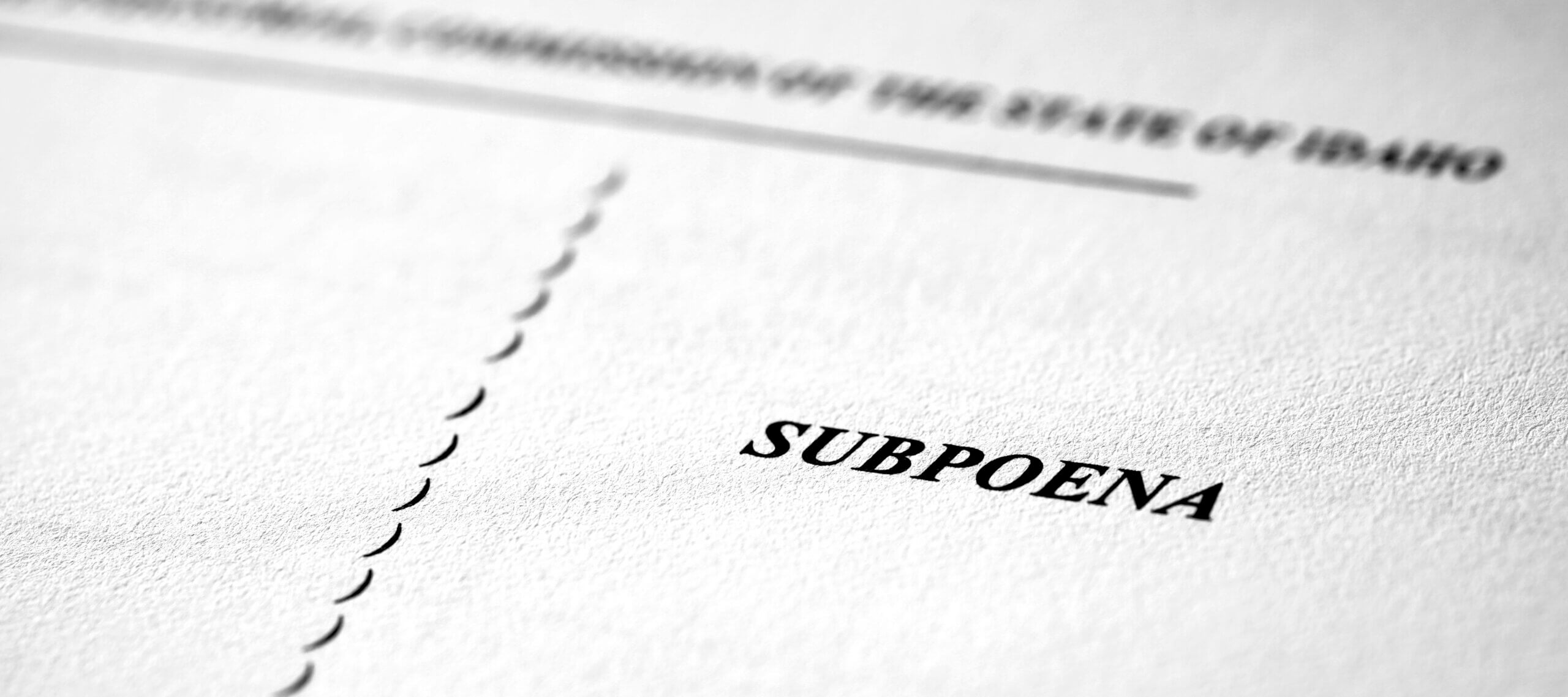In child custody cases, the legal procedures and requirements are of utmost importance. Among these, the issuing and honoring of subpoenas can significantly influence the case’s outcome. Understanding what a subpoena is and the consequences of ignoring it is crucial not only for legal compliance but also for the well-being of the child or children involved. Ignoring such an important legal directive can lead to severe repercussions.
What Is a Subpoena?
A subpoena is a legal document issued by a court or a legal authority, compelling an individual to either produce evidence or testify in a legal proceeding. Its name originates from the Latin phrase “subpoena,” meaning “under penalty,” which aptly conveys the seriousness and obligatory nature of the command. Subpoenas play a pivotal role in the justice system, ensuring that necessary information or testimony is available during legal processes.
There are primarily two types of subpoenas: “subpoena duces tecum” and “subpoena ad testificandum.” The former requires the recipient to produce documents, records, or tangible evidence for a trial or deposition, while the latter mandates an individual to provide oral testimony during a legal proceeding. In both scenarios, non-compliance can lead to legal consequences.
Receiving a Subpoena in a Child Custody Case
Receiving a subpoena in a child custody case can be an unsettling experience, especially if one is unfamiliar with its legal implications. In the context of child custody, a subpoena might be issued to produce evidence that helps determine the best interests of the child or children involved. It can require a party to provide pertinent documents, such as medical records, school reports, or other related documents. Alternatively, a parent or related individual might be summoned to testify about the child’s living conditions, the relationship with the parents, or any other relevant factors.
It’s crucial to understand that being served a subpoena in a child custody dispute does not necessarily indicate wrongdoing. Instead, it’s a procedural mechanism employed to gather comprehensive information to make informed custody decisions. Refusing to comply with such a directive can be detrimental, potentially swaying the court’s decision unfavorably or leading to other legal penalties.
Legal Ramifications for Ignoring a Subpoena
Ignoring a subpoena is a serious matter with potentially grave consequences. In the eyes of the court, non-compliance with a subpoena is tantamount to disregarding the law, and as such, it can have significant legal ramifications. For starters, those who neglect a subpoena’s directives might face financial penalties. Courts can impose hefty fines on individuals or entities who fail to comply, as a means to emphasize the mandate’s importance and deter others from similar non-compliance. These fines can vary based on jurisdiction, the nature of the case, and the degree of non-compliance, but they can be substantial.
Beyond monetary penalties, more severe consequences might be in store for persistent non-compliance. An individual can be held in contempt of court, a designation that can lead to jail time, especially if the person’s failure to comply obstructs the course of justice. In the context of a child custody case, ignoring a subpoena can also adversely influence the court’s perception of the involved party, potentially affecting the outcome of the custody decision itself.
Contempt of Court: A Serious Outcome
Contempt of court refers to any act or omission that defies or disrespects the authority, justice, and dignity of the court. Such actions undermine the effectiveness and credibility of the judicial system. Being held in contempt can arise from various behaviors, ranging from disrupting court proceedings with inappropriate behavior to failing to adhere to court orders or directives, such as subpoenas.
When an individual is found in contempt, the court has the discretion to impose sanctions, which can be either civil or criminal. Civil contempt often seeks to coerce the offender into complying with a particular order, and penalties might include fines or even detention until compliance is achieved. On the other hand, criminal contempt penalties serve as punishment for actions that have already occurred, often leading to set fines or predetermined jail terms. Regardless of the type, contempt of court carries serious consequences, reflecting the significance of maintaining respect and adherence to the judicial system.
Protecting Your Rights: What to Do If You Are Served
If you’re served with a subpoena or any other legal document, the initial step is to remain calm and thoroughly review the information provided. Understand what is being asked of you, whether it’s to produce certain documents or to testify at a given date and location. Pay close attention to any specified deadlines or instructions. Ignoring the document or hoping it’ll go away is not an option and can have severe repercussions.
Next, promptly seek legal counsel. Even if you believe the subpoena is straightforward, consulting with an attorney can provide clarity on your obligations and rights. An attorney can also advise on potential legal strategies or avenues to address the subpoena, such as filing motions to quash or modify it if there are legitimate grounds. While the subpoena itself is not an indication of wrongdoing, ensuring you respond correctly is essential to safeguarding your interests.
Reach Out For Help If You Receive a Subpoena in Your Child Custody Case
Ignoring a subpoena or any court directive can have far-reaching consequences that may impact the outcome of your child custody case. If you receive a subpoena, it’s crucial to seek expert guidance. Cohen Family Law is here to support and guide you, ensuring your rights are protected and the best possible outcome is achieved. Please don’t hesitate to reach out for assistance.

